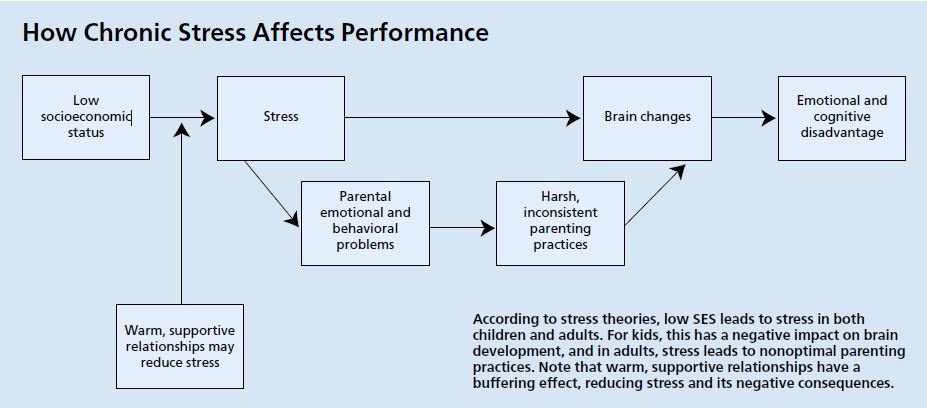A piece I wrote for the American Educator on this phenomenon is just out. You can read it here. A very brief summary follows.
A great deal of research from the last ten years can be summarized in two broad theories.
Family Investment theories offer the intuitive idea that wealthier parents has more resources to invest in their kids, and kids, naturally enough, benefit. Financial resources can go to enrichment experiences in the summer, more books in the home, a tutor if one is needed, better access to health care, and so one.
Wealthier parents are also likely to be higher in human capital--that is, they know more stuff. Wealthier parents speak more often to their children, and with a richer vocabulary, with more complex syntax, and in a way that elicits ideas from the child. Wealthier parents are also more likely to read to their children and to buy toys that teach letters and the names of shapes and colors.
Finally, wealthier parents are more likely to be rich in social capital--that is, they are socially connected to other people how have financial, human, or social capital.
The second family of theories on this phenomenon is Stress theory. Stress theories apply particularly to low-income families, and suggest that poverty leads to systemic stress--stress caused by crowding, by crime-ridden neighborhoods, by food uncertainty, and other factors. This stress, in turn, leads to emotional problems in parents, which leads to ineffective parenting strategies. Stress also leads directly to brain changes in children. Both of these factors lead to emotional and cognitive disadvantage for kids. The theory is summarized in the figure.
I close with this paragraph:
The research literature on the impact of socio economic status on children's learning is sobering, and it's easy to see why an individual teacher might feel helpless in the face of these effects. Teachers should not be alone in confronting the impact of poverty on children's learning. One hopes that the advances in our understanding the terrible consequences of poverty for the mind and brain will spur policymakers to serious action. but still, teachers should not despair. All children can learn, whatever their backgrounds, and whatever challenges they face.

 RSS Feed
RSS Feed